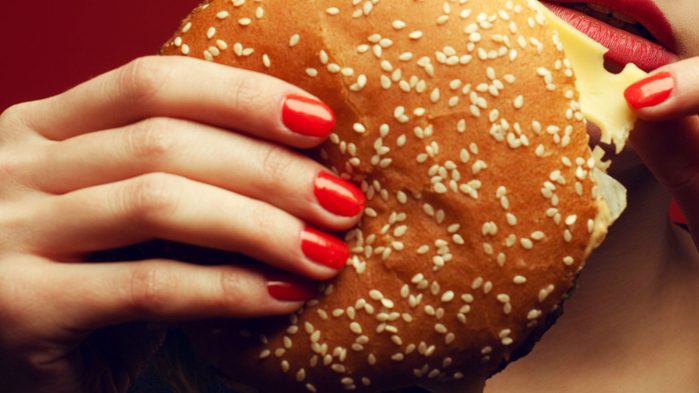
Are cheat meals good for you?
“It’s very important to cheat,” contends Ramona Josephson, a Vancouver-based registered dietitian. Though it may seem counterintuitive at first, a closer look reveals why cutting yourself some slack may actually help you shed pounds. It’s easier to stick to a healthy eating plan if you allow yourself a little flexibility, she says.
Breena Fretz, a public health dietitian at Brant County Health Unit in Brantford, Ont., agrees. “It makes it more sustainable,” she explains. “The more you take [a treat] away from yourself, the more you’re going to crave it.” Josephson recommends her clients eat three meals and two snacks a day to keep blood sugar steady.
Erratic eating can cause spikes in blood sugar, which can lead to cravings for high-sugar foods and, ultimately, to bingeing. She is also keen on a well-balanced diet: Loading up on veggies, including protein at every meal and opting for carbs at breakfast and lunch, with carbs at dinner being optional.
Not all the dietitians we interviewed for this story agree with a “cheating is okay” approach to weight loss. But all prefer their clients follow a healthy and balanced eating plan that can be maintained for a lifetime, rather than a diet that highly restricts calories or cuts out certain food groups.
For many people, though, even the best-designed diet needs a little flexibility, a small amount of indulgence.
“If you don’t allow yourself ‘cheat foods,’ when you do cheat, you’ll be filled with guilt, which may set you spiralling backwards,” Josephson says.

Make cheat meals good for you: How to have 100 “fun” calories a day
So, how much should you cheat when you are trying to lose weight?
No one is suggesting an all-you-can-eat junk food buffet, where you get to binge on an unlimited amount of every imaginable indulgence.
Fretz suggests a small amount (100 calories) of one of your favourite treats daily. That might be a 100-calorie chocolate bar, or one-sixteenth of a pie. Josephson recommends a modest 90 calories toward what she terms “fun food” for every 1,350 calories of eating on a healthy plan. It could be 90 calories each day or 630 calories once a week.
But if you choose to save up your cheating for once a week, won’t those extra 630 calories affect your metabolism? Josephson says it won’t, for two reasons: The cheating is modest, and you’re eating well the vast majority of the time.
“Over a period of one week, there are 21 meals and 14 snacks. So one moderate indulgence isn’t going to affect your metabolism. What affects your metabolism is what you do on a daily consistent basis,” she explains.
And don’t compensate for these treats by skipping meals – that will do more harm than good, says Fretz.
If you skip meals and then binge at the end of the week, you are more likely to slow your metabolism, because your body won’t know when the next meal is coming and it will hang on to the calories when it finally gets some. A study in the European Journal of Clinical Nutrition discovered that skipping breakfast was associated with being overweight in second and fourth graders; in fact, the most important risk factor in becoming overweight and obese was skipping breakfast.

How to make cheat meals good for your metabolism
- Make the most of it: Josephson suggests selecting an indulgent treat, such as a medium-sized fresh-baked chocolate chip cookie, and breaking it up into small pieces so you can stretch out the experience over a longer period of time.
- Go for quantity: You can also try another approach, according to Josephson, by looking for foods that provide the largest volume for 90 calories. For example, four cups (1 L) of air-popped popcorn without any added fat instead of eight potato chips, or 1/2 cup (125 mL) of sorbet as opposed to 1/4 cup (50 mL) of gourmet ice cream.
- Make it an event: Don’t eat your treat mindlessly in front of the TV or computer. “Take your time, sit down and avoid all distractions. If you’re having that slice of pie, put it on a nice plate,” Fretz says.
- Use portion control: Even with a healthy eating plan, some people are more inclined than others to go overboard with their treats, says Dr. Janet Polivy, a professor of psychology and psychiatry at the University of Toronto. If you are the type of person who has trouble setting a limit, she recommends dividing the treats you choose into appropriate portions so you aren’t tempted to eat more. Wrap up the individually portioned foods and store them in a place where they are difficult to get to, then remove only one at a time.
- Avoid trigger foods: Trigger foods are the ones you just can’t stop eating. If you know that as soon as you eat one or two chips, you’re going to feel the need to finish the whole bag, then you should avoid bringing chips into the house altogether. Or retrain yourself to love a healthier and lower-calorie alternative, such as caramel-flavoured rice cakes, instead.
- Get back to basics quickly: Of course, after you’ve cheated, it’s essential to get back on your healthy eating plan right away. “The more sugar and fat you have, the more you’ll want,” Josephson explains. If you do get off track – and it’s going to happen to everybody at some time or other – don’t spend time beating yourself up about it, says Fretz. Tomorrow is a brand new day; just get back on track.

When are cheat meals bad for you?
Not everyone is on the “cheat meals are good for you” band wagon.
Lesley Burgess, a registered dietitian in St. John’s, and Denise Hargrove, registered dietitian and health promotion director at Canadian Forces Base in Kingston, Ont., aren’t keen on this approach to weight loss because they believe it gives people permission to overindulge.
Also, Hargrove says, “the concept of cheating implies a certain rigidity to a person’s eating, one which I don’t believe is necessary or wise. All foods can fit in moderation. This ‘all or nothing’ mentality that breeds the notion of ‘cheating’ makes it much more likely that a person will overeat or binge, and go off the healthy eating plan altogether.”
However, a study published in the New England Journal of Medicine notes that individual preferences should be taken into account when embarking on a weight-loss program. The study, which compared low-carb, Mediterranean and low-fat diets, found that each can get results, but the key is finding a diet you can live with.
Don’t miss out! Sign up for our free weekly newsletters and get nutritious recipes, healthy weight-loss tips, easy ways to stay in shape and all the health news you need, delivered straight to your inbox.
